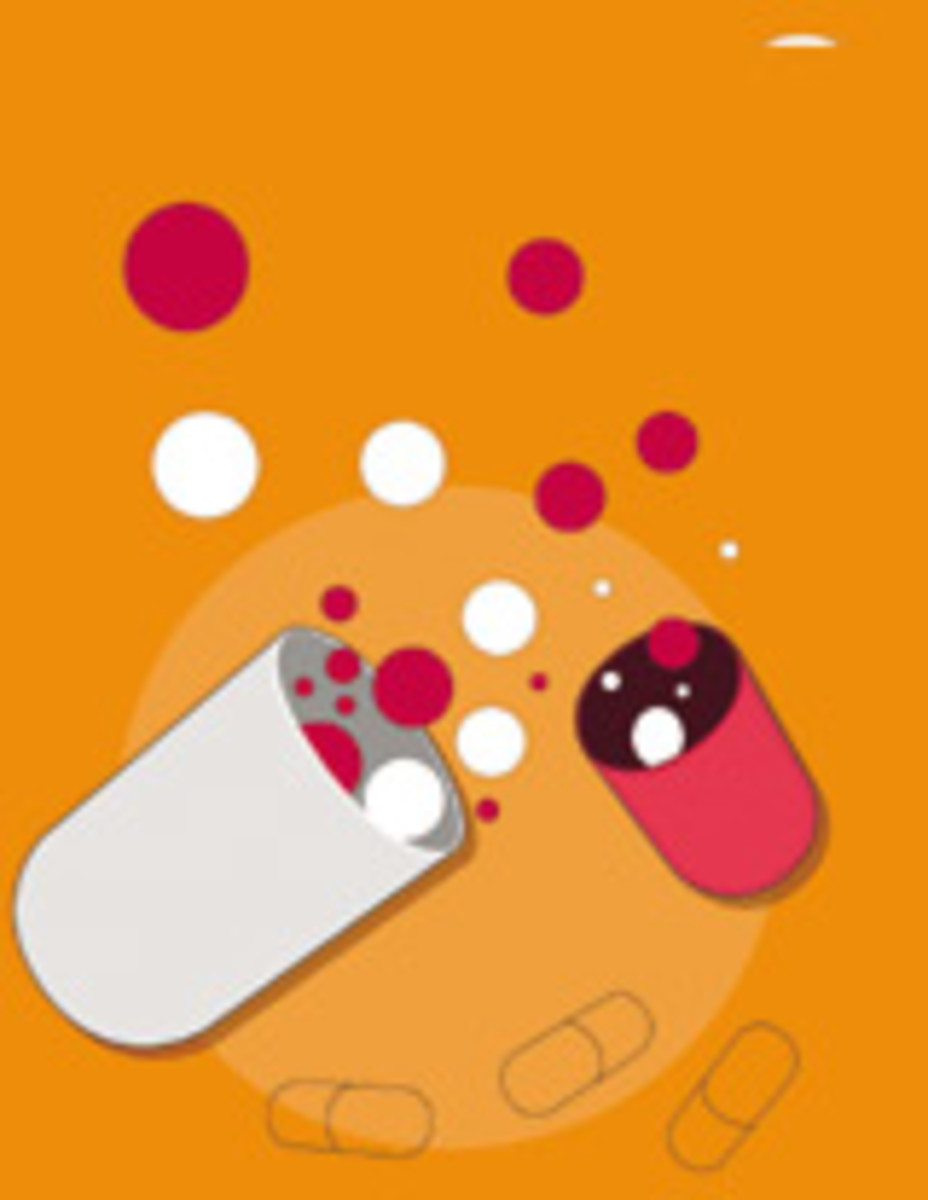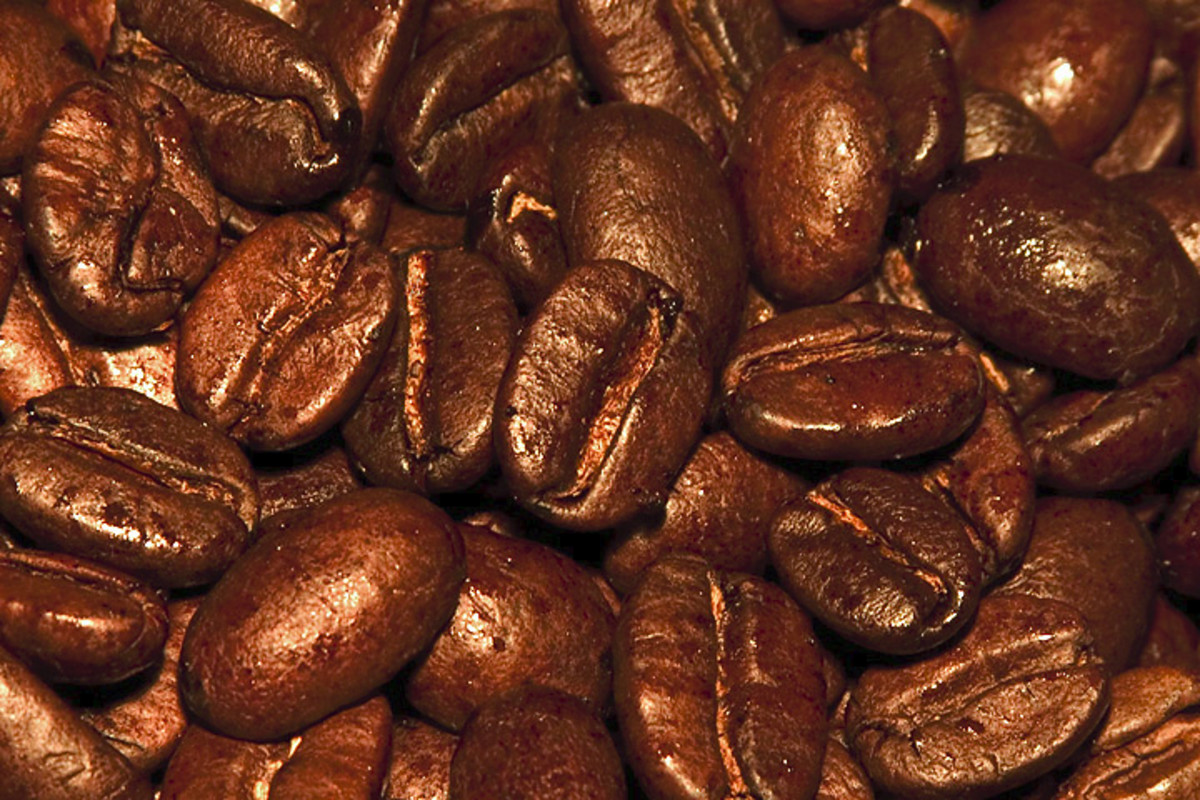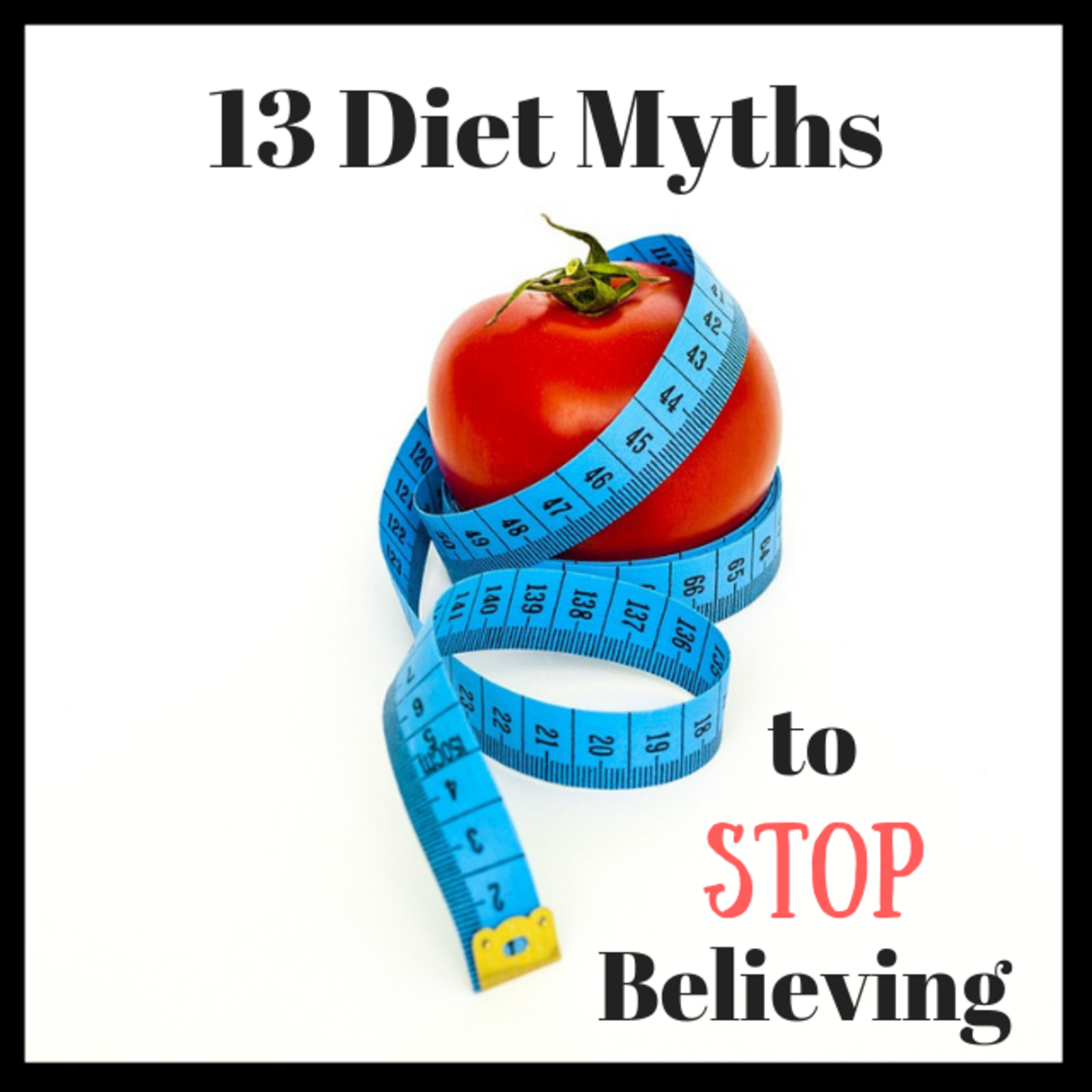What is the Controversy Around Natural Caffeine Extract?
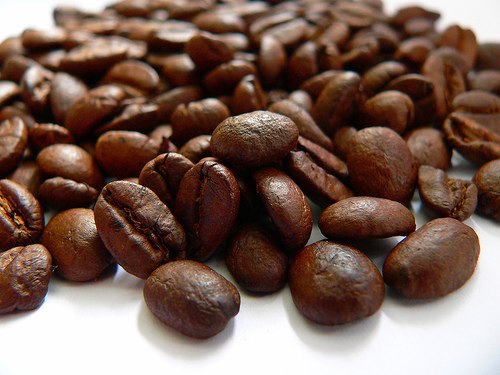
Natural Caffeine Extract
Caffeine Extract
Caffeine extract is a white crystalline powder that is a psychoactive stimulant drug. It has a bitter taste and is popularly consumed in coffee, tea, soft drinks and, in desserts (smaller doses). While caffeine is very popular, lately there’s been lots of controversy surrounding this drug and you should weigh all the pros and cons prior to consuming this product.
Use and Common Sources of Caffeine Extract
Caffeine powder extract belongs to the group of medicines that stimulate the central nervous system (CNS). Most commonly, it is used as a mood-altering drug thanks to its ability to restore mental alertness when unusual tiredness or weakness or drowsiness occurs. Caffeine shouldn’t be used regularly for the purpose of sleep replacement, otherwise it may cause health problems (see below).
Caffeine can be found in numerous plants, including coffee, tea, cacao pod, cola nut, guarana, and maté. According to the recent research, about 80-90% of the population in North America habitually consume caffeine. About 15% of the general population stopped using caffeine because of health concerns and unwanted side effects.
The average dose of caffeine powder is about 280 milligrams (the equivalent of 18 ounces of brewed coffee or 85 ounces of soft drinks). Studies demonstrate that 30 mg or less of caffeine powder can alter the mood and affect behavior. If you consume 100 miligramms a day, this can lead to physical dependence and unpleasant side effects.
Caffeine in Drinks
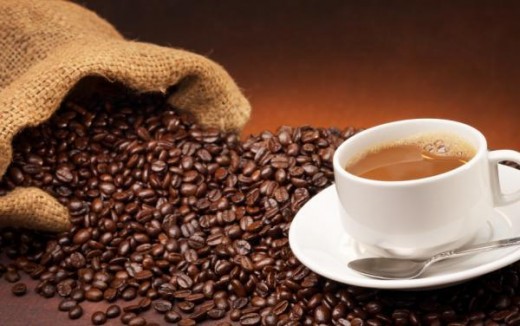
How Much Caffeine Extract in Drinks, Foods, and Drugs?
Although most people are aware that coffee, tea and most cola beverages include caffeine, several sources of caffeine are not so widely known. Most soft drinks (about 70%) contain caffeine extract, these include such drinks as root beer, orange soda, cream soda, and lemon-lime drinks. You can find significant doses of caffeine extract even in such products as coffee ice creams and yogurts.
Although chocolate milk, cocoa, and milk chocolate candies include caffeine extract, its dose is usually small enough (less than 10 mg) to avoid any detectable mood and behavioral effects.
Below you will learn about the caffeine extract dose in the most popular drinks.
How Much Caffeine Extract in Coffee Drinks?
· Coffee, generic brewed, 8 oz, 102-200 mg
· Coffee, Starbucks brewed, 16 oz, 330 mg
· Instant coffee, 8-oz cup: 95 mg
· Coffee, Dunkin' Donuts brewed, 16 oz, 206 mg
· Powdered cappuccino beverage, 8-oz cup: 45–60 mg
· Caffé latte or cappuccino, Starbucks, 16 oz, 150 mg
· Caffé latte or cappuccino, Starbucks, 12 oz, 75 mg
· Espresso, Starbucks, 1 oz, 75 mg
· Espresso, generic, 1 oz, 30-90 mg
· Coffee, generic instant, 8 oz, 27-173 mg
· Coffee, generic decaffeinated , 8 oz, 3-26 mg
Caffeine in Tea?
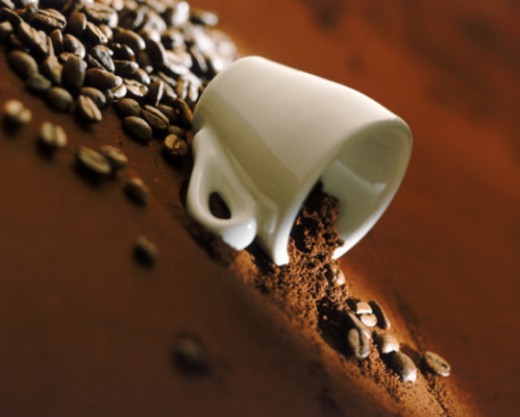
How Much Caffeine in Tea Drinks?
· Black tea, brewed, 8 oz, 40-120 mg
· Green tea, brewed, 8 oz, 30-50 mg
· Decaffeinated black tea, 8 oz, 2 mg
· Starbucks Tazo Chai Tea latte, 16 oz, 100 mg
· Nestea, 12 oz, 26 mg
· Snapple, 16 oz, 42 mg
· Iced tea from mix, 8-oz glass: 25–45 mg
· Snapple iced tea, 8-oz glass: 21 mg
· Lipton Brisk iced tea, 12 oz, 10 mg
How Much Caffeine Extract in Soft Drinks?
· Coke, 12 oz, 35 mg
· Pepsi, 12 oz, 38 mg
· Jolt Cola, 12 oz, 72 mg
· Dr. Pepper, 8-oz. glass: 28 mg
· Diet cola, 8-oz glass: 31 mg
· Root beer, 8-oz glass: 16 mg
· Mountain Dew, 12 oz, 54 mg
· 7-Up, 12 oz, 0 mg
· Sierra Mist, 12 oz, 0 mg
· Sprite, 12 oz, 0 mg
How Much Caffeine Extract in Energy Drinks?
· Red Bull, 8.3 oz, 80 mg
· SoBe Essential Energy, berry or orange, 8 oz, 48 mg
· SoBe No Fear, 8 oz, 83 mg
· 5150 Juice, 1 oz, 50 mg
· Fixx Extreme, 0.17 oz, 40 mg
· Boo-Koo Energy, 24 oz, 36 mg
· Redline Power Rush, 2.5 oz, 35 mg,
· Spike Double Shot, 4.26 oz, 35 mg,
· Spike Shotgun, 16 oz, 35 mg,
· Wired X344, 16 oz, 34 mg,
· Rockstar Punched Guava, 22 oz, 33 mg
How Much Caffeine Extract in Desserts?
· Coffee ice cream, 8-oz serving: 60–85 mg
· Coffee yogurt, 8-oz serving: 45 mg.
· Dark chocolate, 1.45-oz bar, 31 mg
· Milk chocolate, 1.45-oz bar, 11 mg
· Coffee ice cream or frozen yogurt, 8 oz, 50-60 mg
· Hot cocoa, 8 oz, 3-13 mg
How Much Caffeine Powder in Drugs?
Medicinal products often contain large doses of caffeine powder. Such over-the-counter stimulant medications as NoDoz, and Vivarin contain from 100 mg to 200 mg per tablet. Such caffeine-containing analgesics Excedrin, Anacin, and Midol contain from 65 to 130 mg per two tablets.
Pure Caffeine Powder
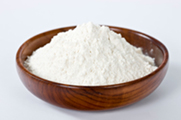
What Is Caffeine Powder Extract Used For?
Caffeine extract powder often is used in a combination with ergotamine to treat migraine and cluster headaches, as well as with several analgesics as aspirin or acetaminophen. Such treatment may significantly increase the effectiveness of these drugs.
Citrated caffeine powder can be used in the treatment for breathing problems in premature babies as well as other conditions as determined by your doctor.
What Are Effects of Caffeine Extract On The Body?
Caffeine Powder Effect on Hormones
Within just a few minutes after your caffeine-containing drink, you can feel the effects of caffeine extract on your body, where it stays for many hours (usually around 4-6 hours). The following hormones are affected by caffeine extract:
Adenosine. This hormone calms the body. When you take caffeine powder or extract, caffeine can inhibit absorption of adenosine, resulting in the alert mood, although this can cause sleep problems if caffeine powder is taken on a regular basis.
Dopamine. When you consume caffeine-containing products, the level of the dopamine hormone are increased in your body, acting in a way similar to amphetamines. This can make you feel great, although can cause an adverse system’s reaction. Besides, you should remember that caffeine extract can lead to a physical dependence due to its effect on dopamine.
Adrenaline. With the consumption of caffeine extract, a large dose of adrenaline is injected into your system, giving it a boost, although once the effect is gone, you may feel fatigued or even depressed.
Cortisol. Caffeine powder can increase the level levels of the body’s cortisol, which is also known as the “stress hormone”. The regular intake of caffeine can lead to such health problems as weight gain, depression, and to heart disease and diabetes.
How Caffeine Effects Physiology?
Caffeine powder can have both positive and negative consequences on your physiology, for instance:
Caffeine Effect on Sleep
Caffeine can affect your sleep by keeping your body and mind awake longer. This gives you less time to restore after sleep, taking a toll on your level of alertness the next day and overall health.
Caffeine Effect on Weight
Several studies demonstrated that increased levels of cortisol can lead to stronger cravings for fat and carbohydrates, and this can cause the body to store adbominal fat, which carries greater health risks than other types of fat. In addition, if increased levels of cortisol can lead to stronger likings for caffeine-containing foods, the human body goes into a cycle that leads only to worse health. What is good about caffeine in this case, is that it speeds up metabolism and can help the body break down fat about 30% more efficiently if consumed prior to physical exercise. More over, caffeine can elevate the levels of blood sugar, making you feel less hungry.
Can Caffeine Boost Sports Performance?
Caffeine powder elevates cortisol levels and other hormones for a temporary boost. Once caffeine is weared off, the body can feel fatigued and the mood can be depressed. In such case, physical activity can become more difficult.
If it’s not overdosed, caffeine powder can enhance physical performance and endurance, as well as elevate energy levels and concentration. This, combined with the caffeine’s effect on fat burning during physical exercise, can actually boost sports performance and enable you to get in a better shape if you take caffeine powder at the right time (at least 2-3 hours prior to the physical activity).
Caffeine Powder Consumption Can Reduce Risk of Stroke in Women
Researchers at the Harvard School of Public Health found the association between caffeine consumption and the risk of stroke over a 24 year period of follow-up in women. More than 83,000 women without history of stroke were under this research. 2,280 varied strokes were documented by the researchers. The correlation between the caffeine-consumers with stroke fell by 20% in the group consuming the most caffeine. This led the researchers to the conclusion that caffeine consumption can moderately reduce the risk of stroke.
Can Caffeine Prevent and Help Reverse Alzheimer's Disease?
Several recent studies showed stunning evidence that caffeine extract can offer another way to fight Alzheimer’s disease and maybe even reverse its effects.
In experiments with lab mice, the researchers from University of South Florida (USF) gave the aged animals the equivalent of the caffeine in five cups of coffee a day. As a result, their severe memory impairment was reversed. This study was published in the Journal of Alzheimer's Disease (Ref.: Caffeine Reverses Cognitive Impairment and Decreases Brain Amyloid-B Levels in Aged Alzheimer's Disease Mice; Gary Arendash, Takashi Mori, Chuanhai Cao, Melissa Runfeldt, and others; Journal of Alzheimer's Disease, Volume 17:3 (July 2009). The study demonstrated that caffeine extract significantly decreased abnormal levels of beta amyloid in both the brains and blood of lab mice with the Alzheimer’s symptoms.
These findings provide evidence that caffeine can be a viable treatment for Alzheimer's, and not simply a protective strategy. This is important because caffeine is a rather safe drug that easily enters the brain and directly affects the disease process.
Several more researches demonstrate that pure caffeine powder has the ability to restore memory by reducing the enzymes that are required for the beta amyloid production. In fact, the scientists suggest that caffeine can suppress inflammatory changes in the brain leading to the increase of beta amyloid associated with the Alzheimer’s disease.
Caffeine Drinks
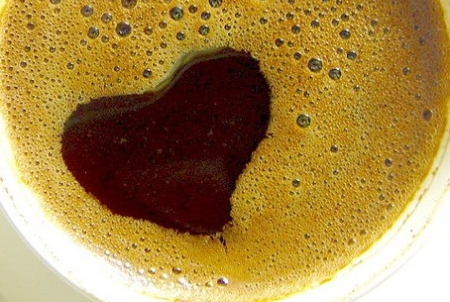
Effects of Caffeine Powder and Where to Buy it
Does Caffeine Powder Reduce Risk of Diabetes?
A study documented in the Journal of the American Medical Association demonstrated that the regular caffeine powder consumption was associated with lower risk of diabetes. The high concentration of chlorogenic acid present in the coffee extract reduces glucose concentrations, though the scientists conclude that the results wee not only due to caffeine, as decaffeinated coffee produced a similar diabetes risk reduction.
Another study by scientists from Duke University Medical School was published in the journal Diabetes Care. It showed that diabetics who consume caffeine may experience a significant increase in blood sugar. The subjects were given 1 caffeine pill a day, and a placebo pill the next day.
When given the caffeine pill, the subjects experienced a 8% rise in blood suger levels. This effect was even stronger after meals, reaching 26% after dinner. Those who took placebo pills, haven’t experienced such results.
The dose of caffeine per one caffeine pill was the same as in the 4 cups of coffee.
Previous studies
showed that caffeine could increase the body's resistance to insulin, which
could lead to the increased levels of blood sugar. Such effect is fairly minor
in people without diabetes, whereas the insulin increase can have serious
consequences in people with diabetes.
The reason why caffeine causes an increase in blood sugar is not yet fully
understood. According to several researches, caffeine extract might interfere
with the mechanisms that remove glucose from the blood. As an alternative, the
intake of caffeine might cause the release of adrenaline, which is also known
to raise blood sugar levels.
Where Can You Get Caffeine Powder?
Pure natural caffeine bulk powder is a substance normally used in a number of popular food and drinks, including coffee, tea, soda and chocolates. It can also be found in a number of other commercially-prepared products like drugs and medicines, including pain relievers and diuretics. This substance exists in nature in different forms and is a part of the methylxanthine family. Caffeine powder is very popular and widely used among people all over the globe, and the amazing properties of this compound attract more than 60% of the world’s population.
Caffeine powder can be obtained at many local drugstores as well as online shops, including purecaffeine.info, aonevitamins.com, purebulk.com, or caffeinepowder.net. There are many more locations where you can get pure natural caffeine powder, although you should try to find a respective provider with a good name. And don’t forget to check out side effects and several other aspects of using caffeine powder prior to actually consuming it.
What is Pharmaceutical Grade of Caffeine Powder and How to Buy Pure Caffeine?
Basically, there are 3 different grades of all raw materials that are used in products:
* Food Grade. This is the grade that meets standards
for human consumption
* Pharmaceutical Grade. This is the grade that meets
pharmaceutical standards
* Feed Grade. This grade meets standards for animal
consumption
The difference between these grades lies in their purity and quality. Pharmaceutical grades are judged according to several criteria, meaning that the product must be 99% pure with no binders, dyes, fillers, excipients, or unknown substances.
United States Pharmacopeia (USP) is responsible for providing consumers and manufacturers with assurance that the quality and purity of the raw caffeine powder are of pharmaceutical grade. This guarantees a certain standard of excellence that can be bought only through physicians or selected pharmacies. You should remember that if caffeine powder is manufactured improperly, it may not work or even lead to adverse reaction. Ask for the facts, if you have any doubts on the quality of your caffeine powder.
Caffeine Powder Legal?
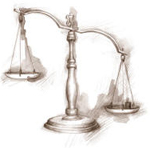
Is Caffeine Powder Legal In The US?
The medical term for caffeine powder is trimethylxanthine. Being a psychoactive drug stimulant, caffeine stimulates the brain in the same way that heroin, cocaine and amphetamines do, although it produces a far less effect. Because this substance can be addictive, drinkers of coffee, tea, energy or drinks, and other beverages that contain caffeine may experience problems without their dose of caffeine.
Because of caffeine’s addictive effect, the US law requires food and drinks manufacturers to put specify that their products contain caffeine, except for chocolate candy bars that contain smaller doses of this component.
According to the US Food and Drug Authority caffeine powder is a multipurpose additive that is safe as food and for general consumption.
What You Need To Know Before You Buy Pure Caffeine Powder Outside the US?
As caffeine is not only the most popular and widely-used psychoactive stimulant, it is also one of the substances that are still legal and unregulated almost in any part of the world. However, you should be aware that anhydrous caffeine has limits in several countries, thus when you buy pure caffeine powder from another country, you should make sure to check the transportation laws first to eliminate the risk of your shipment’s block by customs clearance.
Caffeine Powder
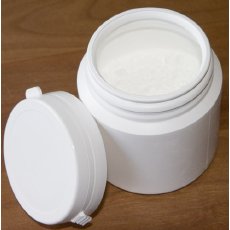
Where Can I Purchase Pure Caffeine Wholesale?
More commonly, caffeine is available in caffeine pills that contain other ingredients besides caffeine itself. If you’d like to purchase pure caffeine wholesale, applying to the many Internet pharmaceutical firms can be a good idea, though there are several aspects you should consider:
1. The substance must meet the FDA manufacturing standards.
2. The quality of caffeine powder depends on its purity. In most cases, companies add other ingredients to their substances. The raw materials may contain only 90% or even less of caffeine, the rest 10% is corn starch and lactose, which are known to be allergens for some people and may cause immunity problems. A respectable company won’t add such ingredients to their caffeine powder.
3. Check the pharmaceutical grade of the caffeine powder you purchase. Pure caffeine must have the highest pharmaceutical grade.
4. Be sure to purchase pure caffeine only after viewing quality control documents.
5. If you buy caffeine powder online, read or ask the supplier about their transportation types and if their packages are endurable enough.
6. Keep track of the expiration dates. If the substance is expired, do not use it and return to the supplier as soon as possible.
What Is The Difference Between Natural & Synthetic Caffeine?
Natural and synthetic caffeine are almost the same in their effect. Their main difference is in their manufacturing process. Natural caffeine is likely extracted from a natural source such as coffee beans or tea leaves and then it can be added to the water (naturally caffeinated water).
Synthetic caffeine is produced in a laboratory and is basically the same substance as natural caffeine as they have identical chemical structures. Both provide a similar effect on your body.
What Are Side Effects of Caffeine?
Very high doses of caffeine can lead to several unwanted side effects, including:
· dehydration
· anxiety
· irritability
· nervousness
· restlessness
· insomnia
· headaches
· irregular heart beat
· rapid breathing
· vomiting
· seizures
People who use large doses of caffeine may experience depression and a number of other health related problems, including osteoporosis, cancer, high blood pressure and heart disease.
On the other hand, moderate doses of pure caffeine powder improve endurance and sports performance as well as alertness. In small doses, caffeine can reduce headaches, and one study demonstrated that a combination of caffeine powder and ibuprofen was more effective in relieving tension headaches than ibuprofen alone. In addition, caffeine consumption appears to lower the risk of liver’s alcoholic and nonalcoholic cirrhosis.

How Much Caffeine When Pregnant?
Small amounts of caffeine are allowed when pregnant, though many physicians believe that women must not drink caffeine at all when pregnant. What lead to this belief is that long-term consumption of caffeine has been associated with fertility problems and there are several evidences that pregnant women who consume more than 150 mg per day of caffeine have a bigger risk of miscarriage and low birth weight babies. However, such findings are complicated because most of the subject women who drink large amounts of caffeine during pregnancy are also heavy smokers.
How Much Caffeine To Overdose?
According to the materials from the American Psychiatric Association, consumption of pure caffeine in excess of 250 mg can induce organic mental disorders or caffeine intoxication. When overdosed, you may experience at least 5 of the following signs:
- restlessness
- nervousness
- flushed face
- excitement
- diuresis
- insomnia
- muscle twitching
- gastrointestinal disturbance
- rambling speech
- tachycardia or arrhythmia
- psychomotor agitation
Overdosing on caffeine will probably be very unpleasant but not kill or deliver permanent damage. However, many cases are registered that people do die from it.
How Much Caffeine Will Kill You?
The lethal dosage of caffeine varies according to people’s weight. Ingestion of 150mg/kg of caffeine seems to be lethal for all people. In other words, if you weigh 50 kilos, 7-8 grams of pure caffeine might have a toxic effect on your body.
In small children ingestion of 35 mg per kg of pure caffeine can lead to moderate toxicity. An average cup of coffee contains 50 – 200 mg of caffeine and you should remember that infants metabolize caffeine very slowly.
How To Counteract Too Much Caffeine?
If any severe effects or caffeine intoxication occurse, you should do the following emergency measures:
1. Maintain the airway;
2. If any seizures or hypotension occur, try to treat it;
3. In case of hypokalemia you should only wait as it goes away by itself
4. Monitor vital signs
5. Induce vomiting;
6. Give the patient activated charcoal and cathartic
You can also use specific drugs and antidotes that effectively reverse cardiotoxic effects. Hypotension or tachyarrhythmias can be treated with intravenous propanolol, 0.01 - 0.02 mg/kg. , or esmolol, 0.05 mg/kg. Be careful not to overdose. Esmolol is a preferred drug due to its short life and low cardioselectivity.
Caffeine Toxic Dose
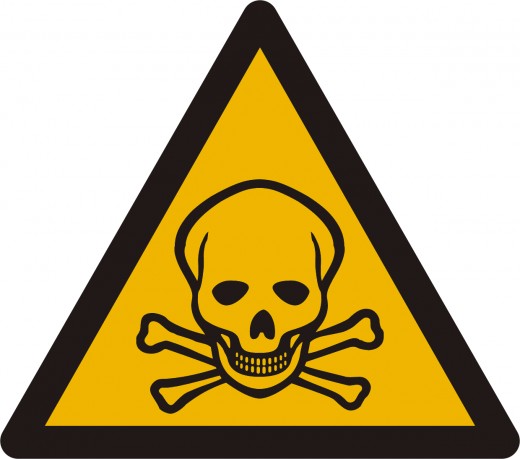
How Much Caffeine Is Too Much?
How Much Caffeine Is Healthy?
To have a temporary positive effect on endurance and cognitive function, you should use caffeine in the range from 200 mg to 600 mg, which is considered the optimal dose.
You mustn’t consume more than 600 mg of caffeine once at a time and to avoid several unpleasant side effects (see the details below) be sure to keep the daily dose within 1200 milligrams. If you use anhydrous caffeine, you should use an accurate weighing scale to accurately measure your dose.
How Much Is Too Much Caffeine?
There is a maximum dose of caffeine in the United States, which is 65mg of caffeine per 12 liquid ounce. There is also a limit on the caffeine dose in medicines – 200 mg per pill.
This is an abstract from the FDA regulation on the Caffeine dose:
Code of Federal Regulations Title 21, Volume 3 From the U.S. Government Printing Office via GPO Access CITE: 21CFR182.1180 Page 462 TITLE 21--FOOD AND DRUGS CHAPTER I - FOOD AND DRUG ADMINISTRATION, DEPARTMENT OF HEALTH AND HUMAN SERVICES Sec. 182.1180 Caffeine. (a) Product. Caffeine. (b) Tolerance. 0.02 percent. (c) Limitations, restrictions, or explanation. This substance is generally recognized as safe when used in cola-type beverages in accordance with good manufacturing practice.
Most energy drinks are classified as supplements that have a much lower oversight than foods and medicines.
According to Australian food regulation, the caffeine’s limit is 145mg per liter for non-energy drinks. Energy drinks can contain up to 320 mg of caffeine per liter.
In a few parts of Northern Thailand caffeine is completely illegal and it was outlawed as a precursor to meth.
Smoke Caffeine Powder
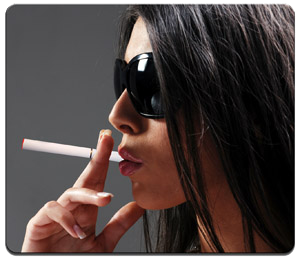
Can You Smoke Caffeine Powder?
Caffeine indeed can be smoked in a similar way as tobacco or marijuana, however not all people know how to get their dose of caffeine properly. Many caffeine pills contain citrates and other salts, that are rather a bad idea to inhale and this can lead to the body’s intoxication. However, if you mix such powder with sodium hydrogen carbonate (in other words, baking soda), this might help.
In any case, as caffeine powder is rather flammable, you would need to smoke it in a varorization pipe similar to the one used to smoke DMT and other free base alkaloids. And be sure not to inhale big doses of burnt caffeine.
Note that quite a few hydrochloride salts are smokable and you should make sure that your caffeine powder is pure enough to be smoked. For this, it is recommended to buy a pure pharmaceutical grade caffeine powder and make experiments on it, rather than burning other ingredients that can be found in ordinary caffeine pills.
So what is the effect of smoking caffeine powder? Caffeine is an adenosine antagonist, and by blocking adenosine at presynaptic receptors, it increases the release of neurotransmitters in the applicable neurons. Many people try to compare the effect from smoking caffeine to the one from marijuana, although they actually work in quite different way.
Skin Cream
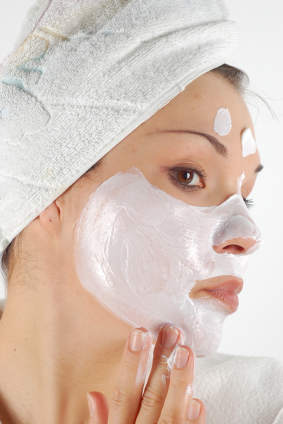
How To Make Skin Cream With Caffeine?
According to the research done by the New Scientist magazine, 90% of people in North America regularly consume this or that form of caffeine. This may include coffee, tea, soft drinks, an energy drinks, or even desserts.
Many scientists agree that caffeine has a positive effect on skin. Whether it is antioxidants that work or the ability of caffeine to reduce inflammation, this substance may alert not only your brain.
Caffeine powder carries enormous antioxidant benefits. The American Journal of Clinical Nutrition researched caffeine and their study demonstrated that a serving of coffee had more antioxidants than several fruits, including oranges and blueberries. Caffeine appears to provide antioxidant protection from free radicals, and this led many cosmetic firms to the belief that small doses of caffeine in their skin creams may help keep the skin healthy and elastic, as well as fight aging and minimize the damage from free radicals.
Additionally, several researches showed that coffee (and the caffeine it contains) can decrease inflammation. When it comes to eye treatment, caffeine can help temporarily reduce puffiness.
Caffeine's anti-inflammatory and vasoconstriction effects also are widely used in numerious anti-cellulite creams. Since caffeine dehydrates the body, some people may see temporary improvements, although this doesn’t support the idea about caffeine’s ability to dissolve cellulite in the long run.
Instructions
If you’d like to make a skin cream with caffeine all by yourself, these are brief instructions that will help you achieve the maximum effect at minimum expenses.
Things you need:
* A cup of sugar
* A cup of caffeine powder or caffeine extract
* Two cups of olive oil
Step 1. Put all the above listed ingredients (sugar, caffeine powder, and olive oil) in a blender.
Step 2. Blend the mixture on a medium speed until you get a smooth mass.
Step 3. Pour the mixture into a jar and cover with a lid.
Step 4. Apply the caffeine cream on a moistured skin and gently massage until the cream is fully absorbed.
For best results, it is recommended to use such caffeine cream on a daily basis.


